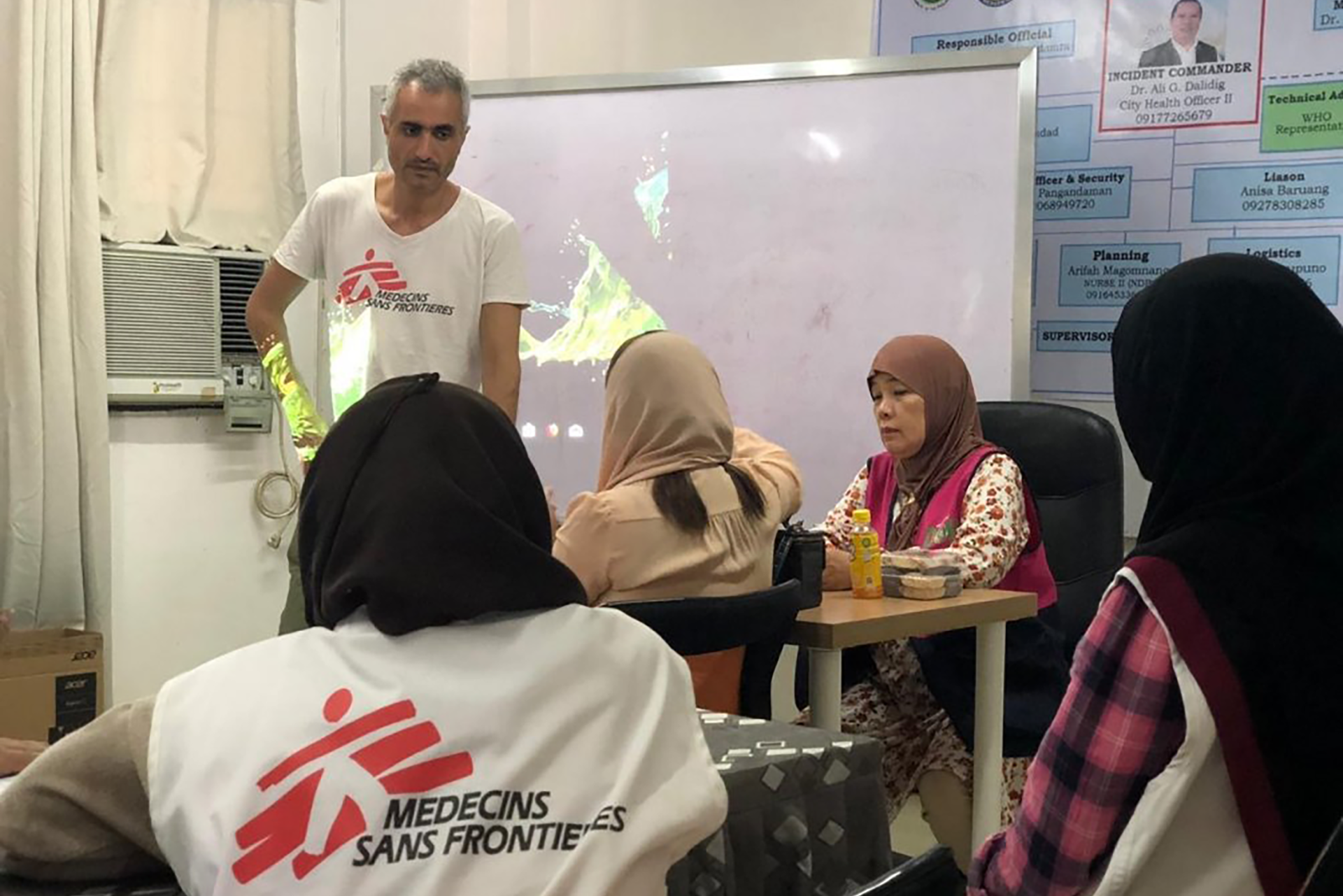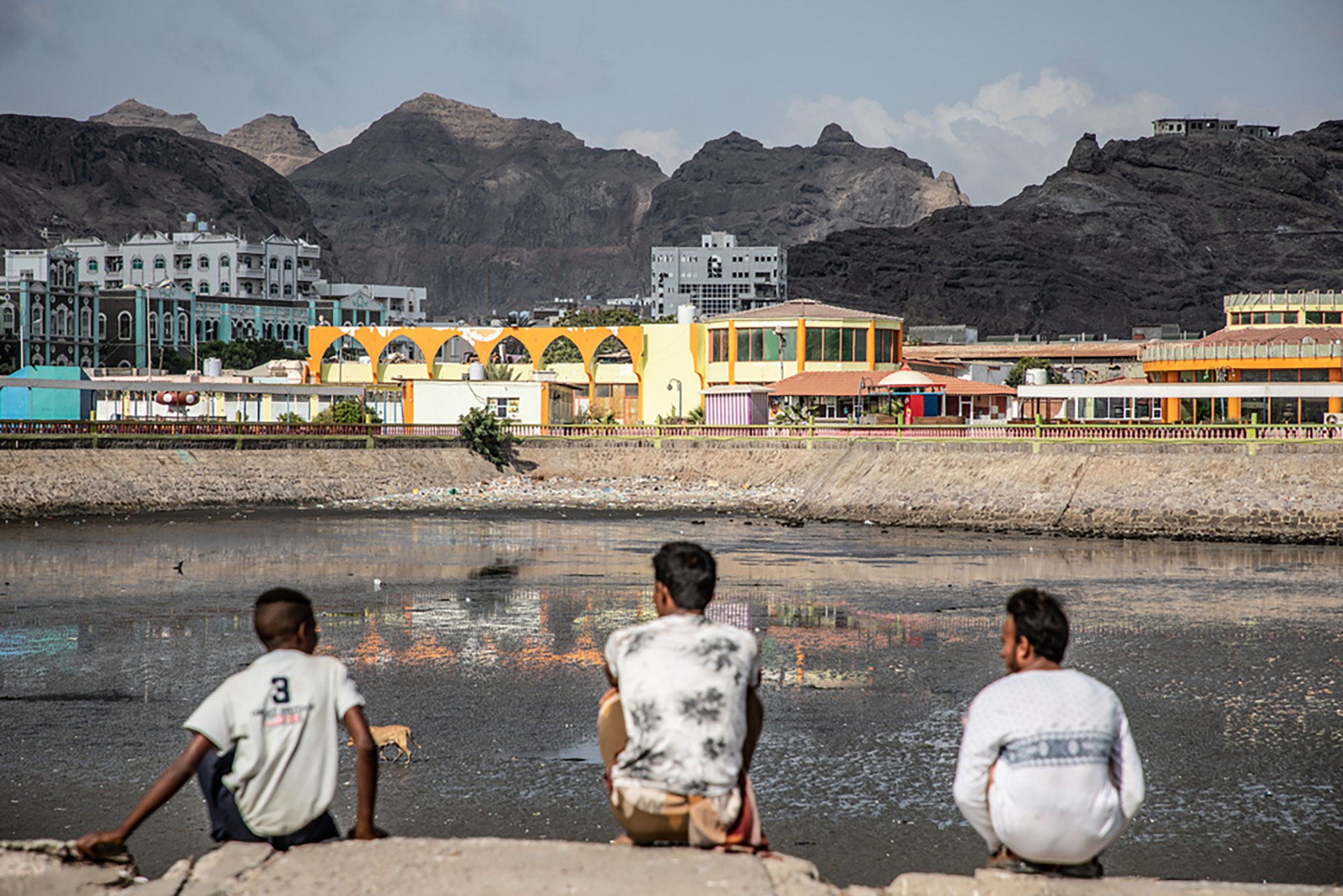As novel coronavirus (COVID-19) overwhelms some of the world’s most advanced health systems, our teams are adapting our activities to aid those most at risk.
When COVID-19 first began to spread, Médecins Sans Frontières/Doctors Without Borders (MSF) doctor Andrew Dimitri flew to southeast Asia to help launch an initial response. “This new coronavirus was just starting to ramp up and it was beginning to become apparent it was an international problem. Our first step was to determine how we could protect both the people we provide care for, and our staff.”
In MSF’s sexual and reproductive health project in Manila, the capital of the Philippines, Dr Dimitri helped to train staff in how to screen and diagnose people thought to have COVID-19, safely transfer those found positive to local health authorities for care, and defend themselves from the disease with personal protective equipment and hygiene procedures.
Never seen before, the COVID-19 virus has posed a challenge to scientists and health professionals worldwide. “It was challenging because we were learning about the virus every day,” says Dr Dimitri. “Although we had other coronaviruses to compare it to, like those that cause SARS and MERS, the COVID-19 virus is really a different beast.”
The MSF team in southeast Asia worked closely with various professionals, synthesising information from many different sources to try to get a clear picture of the virus and how it acted: “How infectious it was, how readily it was transmitted, what kind of disease it caused. This would help us know how it might impact certain populations, and what strategies we might use to mitigate the spread.”
A threat to the vulnerable and neglected
People living in places like the Tondo slums in Manila are at particular risk in this pandemic. “There’s high population density and poor conditions, with little clean water or toilets,” says Dr Dimitri. “A lot of the things we take for granted in terms of hygiene are just not possible there. And there’s very little opportunity for social distancing: you sometimes see a whole family living in one small room.”
In the same region, in Bangladesh’s Cox’s Bazar settlements, hundreds of thousands of Rohingya refugees remain stranded and extremely vulnerable. It is feared an outbreak here could have a devastating impact.
The situation is equally concerning in other parts of the world where MSF Frontières runs regular programs. For people displaced and without basic essentials in northern Syria; men, women and children trapped in squalid conditions in camps on the Greek islands; and HIV and tuberculosis patients in South Africa, their circumstances make them more likely to be hit hard by this pandemic.
"As COVID-19 spreads further, it will continue to expose the inequalities that exist in our health systems,” says Jonathan Whittall, Director of MSF’s Analysis Department. “Many health systems bracing for the impact of the COVID-19 pandemic have already been hammered to breaking point by war, political mismanagement, under-resourcing… they are already barely able to cope with normal patient loads."
Our role in the pandemic
As MSF scales up our response to COVID-19 in over 70 countries, we are acting to protect vulnerable communities and our staff.
In Iraq’s Mosul, a city recovering from years of war, a hospital rebuilt by Médecins Sans Frontières is being used to treat novel coronavirus patients from the entire governorate, and we have equipped a 50-room building for isolation of patients. In northern Syria, we are reviewing triage systems and infection prevention and control in hospitals to prepare for COVID-19 cases, and we have donated personal protective equipment to staff and are training staff in using these.
In Bamako, Mali, we are supporting a COVID-19 unit within a hospital where we run a cancer project, training staff in two hospitals receiving COVID-19 patients and assisting the Ministry of Health with contact tracing. In Uzbekistan, we are running a health promotion campaign on COVID-19 directed at tuberculosis patients.
In Cambodia, we have contributed to the national guidelines for clinical care of novel coronavirus cases, and for Australia’s close neighbours, Papua New Guinea and Indonesia, we have provided COVID-19 training for healthcare staff. We are also distributing soap and water and setting up hand washing points in communities and displacement camps in several countries, and educating people on hygiene practices.
In European countries where health systems are more robust but are becoming overwhelmed, we are advising health authorities on strategies and practices to confront the pandemic, learnt from our extensive experience working in outbreaks. In Brussels, we have set up a 150-bed capacity facility for migrants and homeless people to isolate, receive medical care and be transferred to hospital.
In Spain, we are running two health units with a combined capacity of 200 patients to reduce pressure on hospitals in Madrid, and we have provided around 100 nursing homes with advice on measures to reduce transmission and managing residents with COVID-19. In Italy, teams are supporting three hospitals, a telemedicine program for people in isolation, and assisting nursing homes to prevent the spread of infection.
Empowering communities to respond
As a medical humanitarian organisation, Dr Dimitri says MSF can share important medical information and knowledge in this pandemic. “The nurses and doctors we work with in Manila play a very vital role in informing their patients, but also their families and communities, on what the virus is and how it acts. Through informing and training our staff, we can empower people to have a rational, measured and calm approach to fighting this virus.”



